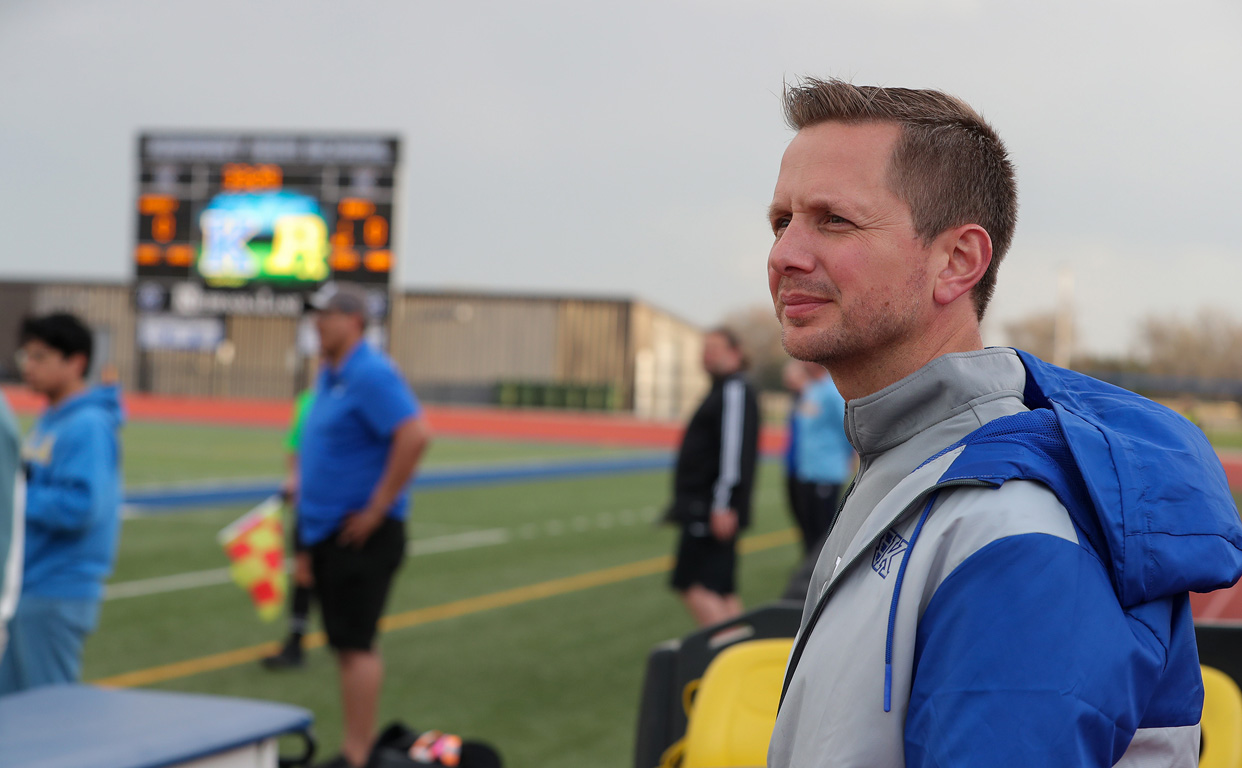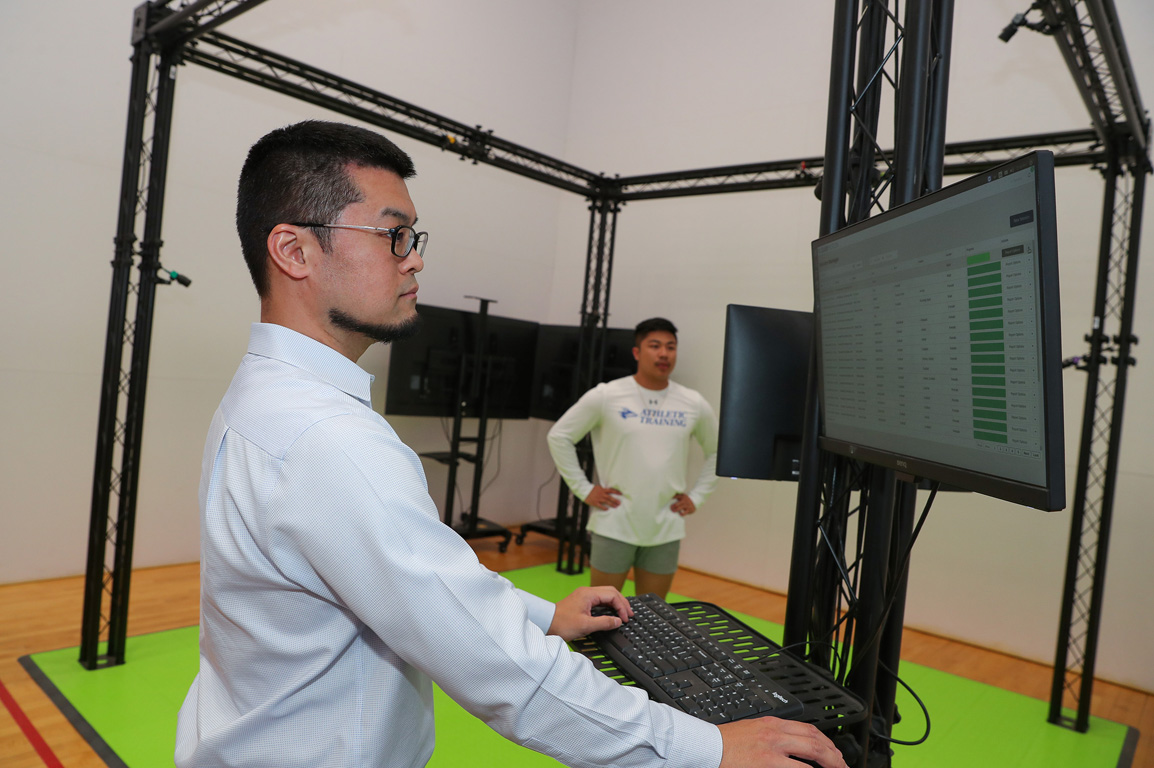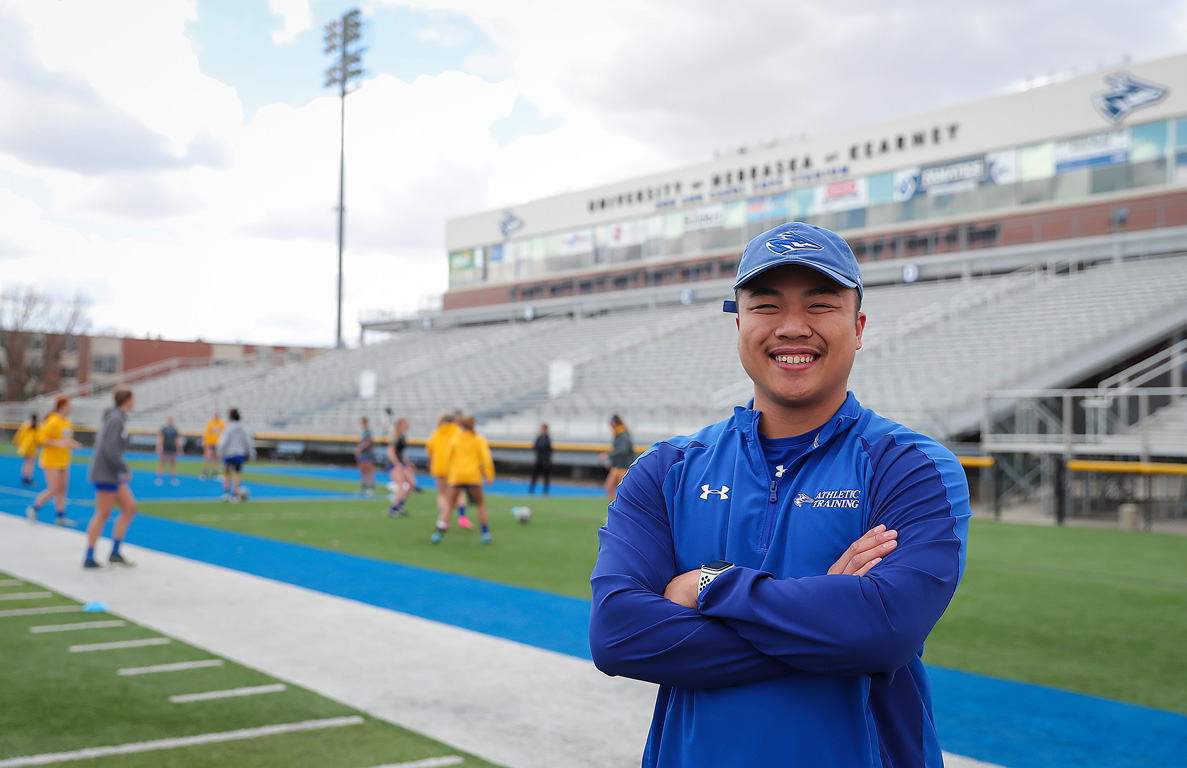
Become an Athletic Trainer
By TYLER ELLYSON
UNK Communications
KEARNEY – Last January, with millions of people watching on “Monday Night Football,” Buffalo Bills safety Damar Hamlin collapsed during the first quarter of a game against Cincinnati.
The 25-year-old went into sudden cardiac arrest and had to be resuscitated on the field.
That moment, broadcast live on national television, sent shock waves across the country. It also highlighted the important role of medical staff at athletic events.
Within moments, Bills assistant athletic trainer Denny Kellington was performing CPR on Hamlin and the medical team was able to restore his heartbeat before the young player was transported to a nearby hospital. Their actions saved his life.
Athletic trainers are often referred to as the unsung heroes of the sports world. These health care professionals are rarely in the spotlight – and they’d prefer not to be – but they’re an essential part of most athletic programs.
“Athletic training is a very unique profession because we wear a lot of different hats. Whether it’s through injury prevention and treatment, emergency care or rehabilitation, the focus is always on improving the health and safety of athletes and other patients. At every level of sports, we have the same skill sets,” said Kazuma Akehi, an associate professor and director of the athletic training program at the University of Nebraska at Kearney.
Launched in the 1960s, UNK has one of the longest-running sports medicine programs in the state. The university offers a Master of Athletic Training graduate professional program, as well as an athletic training minor for undergraduates. Students can enroll in a traditional post-baccalaureate two-year graduate program or they can complete both their bachelor’s and master’s degrees in just five years through a 3+2 structure. Both course sequences provide the high-quality academic and clinical experiences needed to prepare for the board of certification exam.
“UNK has a long history of athletic training education, combined with a mission of providing experiential, hands-on learning,” Akehi said. “Students gain a lot more patient care experience in our program and graduate with the confidence to make an immediate impact in the profession. I think that’s what sets us apart from other programs.”
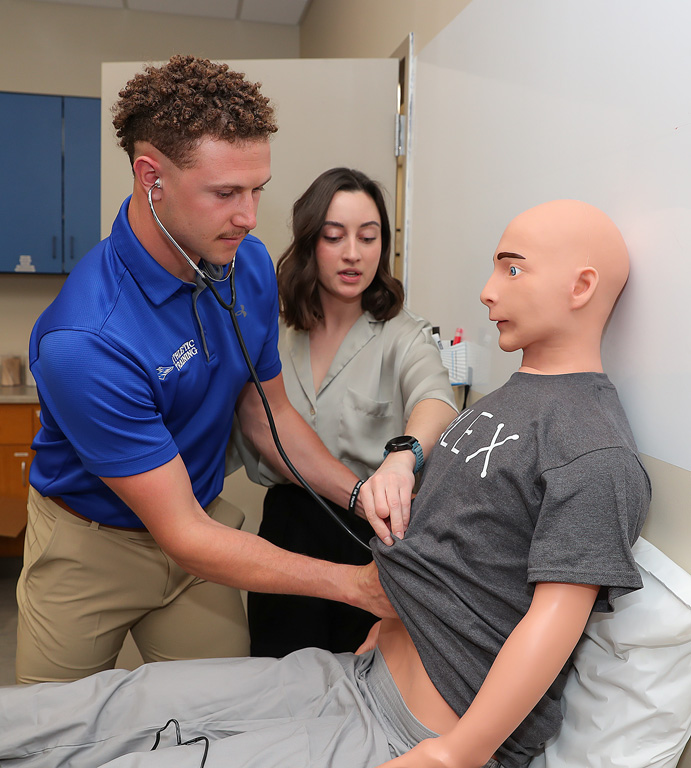
HANDS-ON TRAINING
Accredited by the Commission on Accreditation of Athletic Training Education, the UNK program utilizes a variety of field experience settings where students can apply the knowledge and skills they’re gaining in the classroom. They start in the Athletic Training Lab inside Cushing Coliseum and advance to clinical sites across the Kearney area, including UNK Sports Medicine, high schools, hospitals and clinics, NSAA championship events and the Tri-City Storm hockey team.
Second-year master’s student Kobe Lo has worked with UNK football, wrestling, soccer, track and women’s basketball, as well as Grand Island Senior High School and Kearney Legion Baseball.
“I really enjoy the clinical rotations,” he said. “I’ve worked with a variety of teams, allowing me to develop one-on-one relationships with athletes and see the differences between each level. One thing I learned at the high school level is you have to interact with parents a lot more compared to college.”
Lo also conducted research through the master’s program, focusing on post-concussion syndrome and the use of vestibular/ocular motor screening exercises during rehabilitation.
The Lexington native decided to pursue a career in athletic training because it combines his love of sports with his desire to help others. “I competed in sports all four years of high school, and I kind of missed that atmosphere,” he said.
Lo enrolled in the 3+2 program and graduated in May 2022 with a bachelor’s degree in exercise science. He’ll complete his master’s degree this summer and he already has a full-time position lined up as the athletic trainer at Lexington High School.
“Before this last summer, I would go back home and assist in the summer weight room program, so I’m excited to work with those coaches and students again,” Lo said.
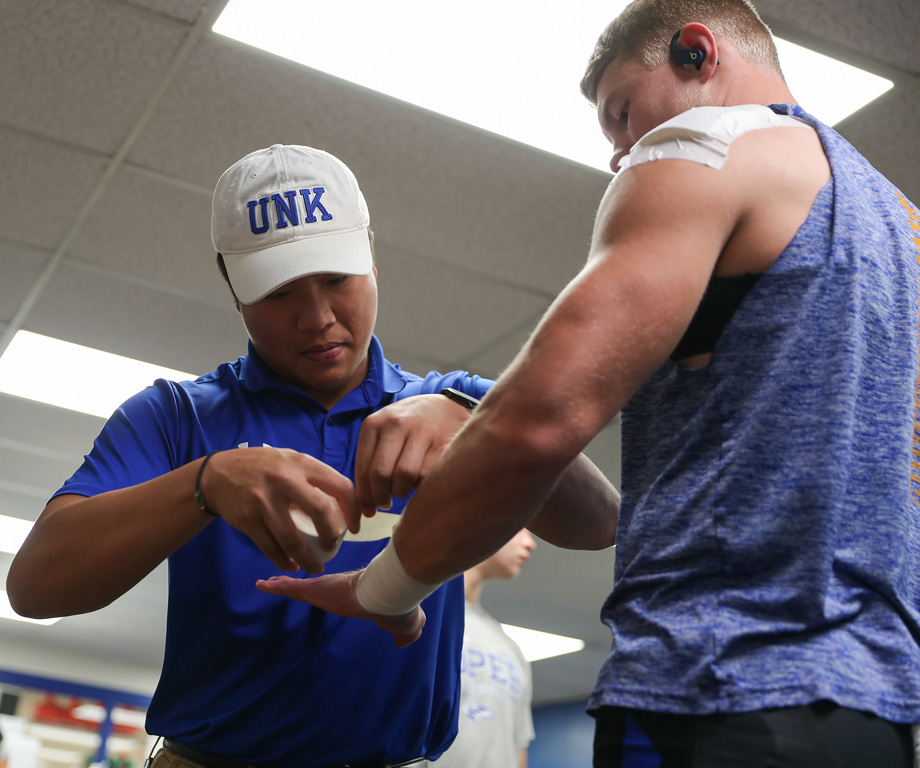
HIGH DEMAND
Graduates of the UNK athletic training program work for high schools, colleges and universities, sports teams and hospitals and clinics across the state and country.
Demand for these professionals has been “significantly higher” in recent years, according to Akehi.
“There are a lot of job openings in the state of Nebraska, even in rural areas,” he said. “If you love sports and you love medicine, athletic training is a good profession for you to pursue.”
Employment of athletic trainers is projected to grow by 17% from 2021 to 2031, according to the U.S. Bureau of Labor Statistics, easily outpacing the average for all other occupations.
“If you graduate with a degree in athletic training, you will have your choice of a bunch of different jobs, then it’s just finding the right fit for you,” said Brian Haas, a physical education teacher and head athletic trainer at Kearney High School.
Haas graduated from the UNK athletic training program in 2007 – the same year as Akehi – and completed a master’s degree in educational administration at the University of Nebraska-Lincoln. He teaches introduction to sports medicine and outdoor pursuits classes at KHS and works with every Bearcat athletics team.
Haas also shares his knowledge with UNK athletic training students who complete clinical rotations at the high school each fall.
“UNK is right up there with the strongest athletic training programs in the country,” he said. “The people who graduate from this program and stay with the profession do really great things.”
